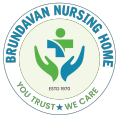Most pregnancies progress smoothly, resulting in the delivery of healthy babies.
However, some pregnancies may end up into high risk. These pregnancies can lead to complications impacting the health of both the mother and baby, necessitating management by specialized doctors.
Factors Contributing to High-Risk Pregnancy
Age-Related Risks
The mother’s age significantly influences pregnancy risks.
Women with less than 17 or more than 35 are at greater risk of complications like miscarriage and genetic abnormalities. The risks increase further for women over 40.
Pre-existing Medical Conditions
Existing health issues can elevate the risk:
Diabetes, high blood pressure
Lung, kidney, or heart problems
Obesity, depression, autoimmune diseases
STDs or chronic infections like HIV
Pregnancy-Induced Conditions
New health issues can also arise during pregnancy, including:
- Preeclampsia: Characterized by high blood pressure and protein in urine, manageable but potentially severe.
- Gestational Diabetes: It is a Manageable condition through a proper healthcare plan, which resolves post-delivery but increases the risk of Type 2 diabetes later.
Monitoring and Managing High-Risk Pregnancy
Biophysical profile
For those with high-risk conditions, a BPP test might be advised, combining a nonstress test (NST) with an ultrasound to assess fetal health, performed after the 28th week of pregnancy.
What BPP Checks
Fetal tone, movements, and breathing
Amniotic fluid volume
Scores from this test help determine the immediate health status of the fetus and guide potential early delivery decisions.
Preventative Measures and Treatments
Preconception Care
Consult with your doctor for a preconception checkup.
Begin taking some of the mandatory medications advised by your doctor before conception.
Maintain a healthy diet, proper weight, and regular physical activity.
Avoid cigarettes, alcohol, and unnecessary medications.
Specialized care.
If diagnosed with a high-risk pregnancy, you might be referred to a perinatologist or maternal-fetal medicine specialist.
“Ensure the health of your baby and yourself. Consult with your doctor on high-risk pregnancy care now. Your safety is our priority.”

